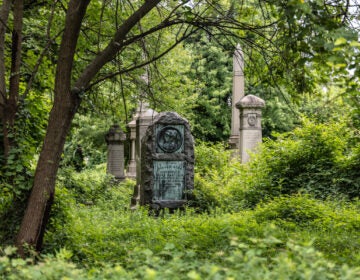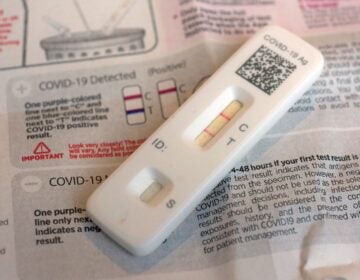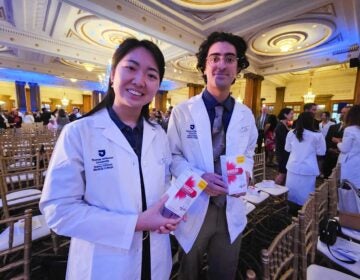Eyes still on the prize in Germantown
In Germantown, this time of year holds a special significance. Martin Luther King Day is quickly approaching and provides a reminder to diversity conscious Northwest residents that the need for social change is still fresh.
For Phyllis Taylor, a Germantown resident and chaplain for the Philadelphia Prison Systems, the issue of racism is still very relevant, and is something she plans to keep pushing forward.
“I still believe we can work together and learn from each other,” she said at a discussion following a viewing of the civil rights documentary film Eyes on the Prize, at the Greene Street Friends Meeting on Saturday January 8.
Civil rights activist, Michael Simmons lead the discussion. The North Philadelphia resident was a member of the Student Nonviolent Coordinating Committee, which was featured in the film.
In 1955, Simmons was 10 years-old and heard about the lynching of Emmett Till, a 14-year-old boy who was brutally murdered in Mississippi for flirting with a white woman.
Simmons, a native of Philadelphia, had felt removed from issues of race that he had heard about from his Southern relatives, but the Till travesty brought it all home.
After that, “I felt the reality of what my family was talking about after the lynching of Till,” Simmons recollected.
This event sparked the civil rights movement in the south and brought national attention to the issues of racism. And it brought Simmons and many other Philadelphians into the forefront of the struggle.
Today young people don’t have a clear national movement to join even though many, like Kenyatta James, a 19-year-old college student from Germantown, recognize Phillis Taylor’s point that the job isn’t quite done yet. Not unlike Simmons when he was young, James said today’s youth are so far removed from Martin Luther King and his contemporaries that the model for thinking of civil rights anchors it too firmly in the past – as if it’s over.
“As an African American youth, we’ve been taught that the civil rights movement (resulted in) opportunity,” James said. He felt at a loss of just what he should do to further the work, but said it helped to have Simmons there in front of him. “Why should we fight it now?.. It’s good to have a person who was actually there when it seems like ancient history to me.”
Simmons also questioned the dominant perspective on civil rights and the messages that view delivers. He feels some key points have been sanitized in popular memory: the level of brutality of the time, the sense of scope of activists’ efforts, the amount of discipline it took to remain peaceful in that context, and the importance of a clear, shared vision.
Without this historic frame for civil rights, there’s a way that even the worthy volunteer work we’ve gotten accustomed to doing on Martin Luther King Day, can go to our heads, Simmons warned.
“We have to challenge ourselves to be humble in terms of things we do for good in society,” he said.
As the discussion went on, community members considered starting an open dialogue about racism, and many questioned how effective such a discussion could be in a mixed audience. The conversation was not easy, but it stayed civil and even went beyond the time allotted for the event.
Perspectives varied when it came to specifics, but all seemed to agree the work begun in the civil rights movement remains unfinished.
As for Simmons, his work has expanded in scope over the years. Most recently it has taken him to Budapest, with partner Linda Carranza, advocating for the rights of the Romani gypsies in Europe. To him it’s an extension of what he began with SNCC.
“As I grew I saw that there were more than just black people being oppressed,” Simmons said, “Now I think of it as a human rights struggle, rather than just civil rights.”
WHYY is your source for fact-based, in-depth journalism and information. As a nonprofit organization, we rely on financial support from readers like you. Please give today.




